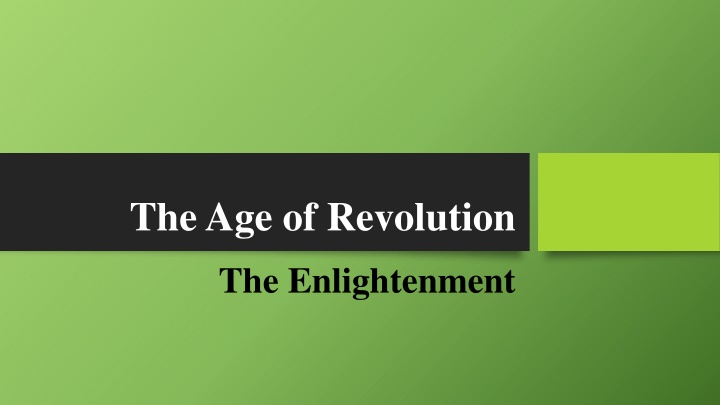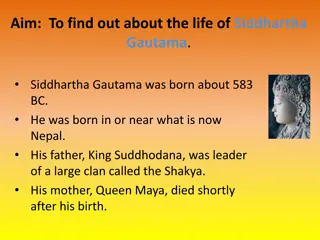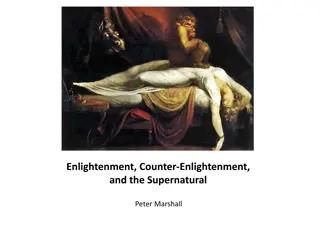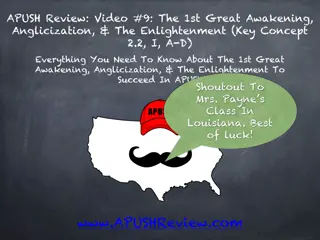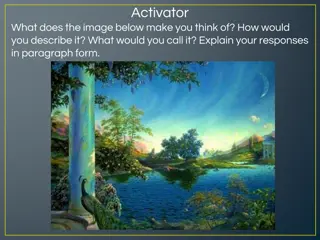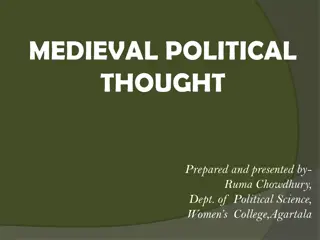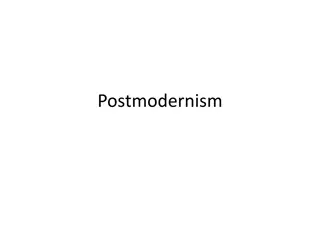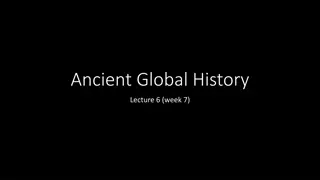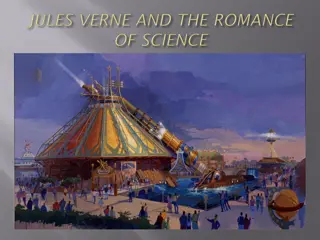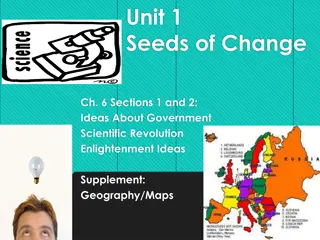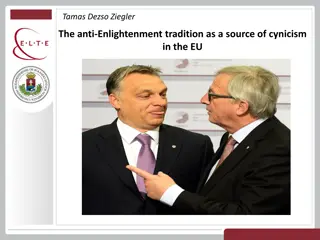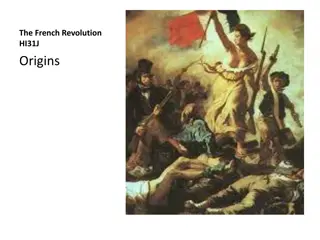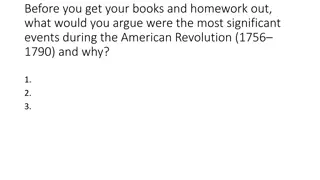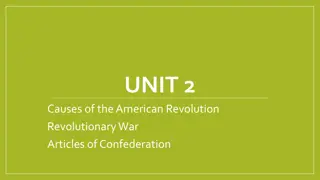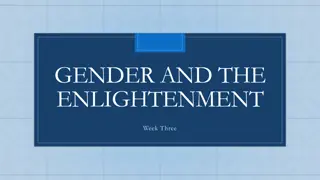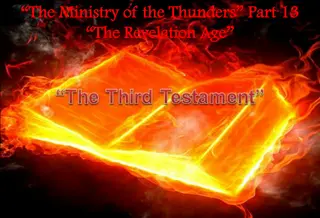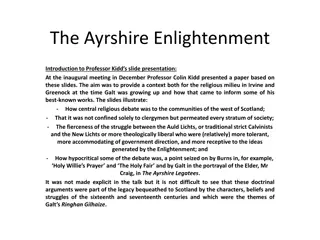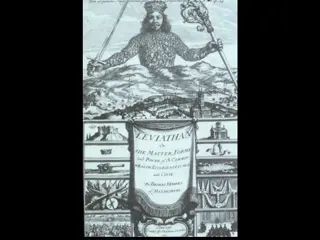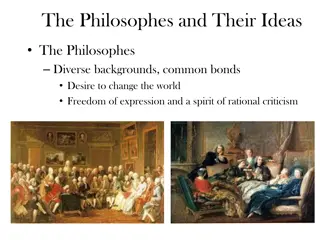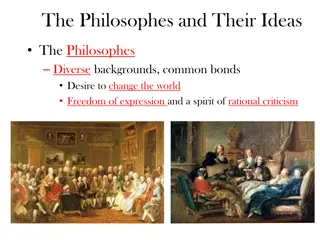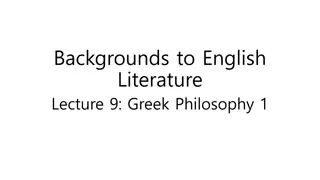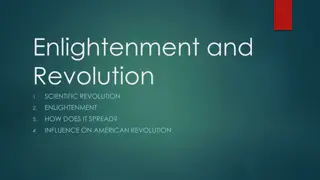Enlightenment Thinkers and Their Ideals
The Age of Revolution was marked by influential Enlightenment thinkers such as Thomas Hobbes, John Locke, Montesquieu, and Jean-Jacques Rousseau. These philosophers explored human nature, government, and society, shaping modern political thought. Hobbes emphasized a pessimistic view, advocating for a strong central authority, while Locke promoted natural rights and limited government. Montesquieu's ideas focused on the separation of powers to safeguard liberty, and Rousseau believed in the innate goodness of humanity. Their theories continue to influence political ideologies today.
Download Presentation

Please find below an Image/Link to download the presentation.
The content on the website is provided AS IS for your information and personal use only. It may not be sold, licensed, or shared on other websites without obtaining consent from the author.If you encounter any issues during the download, it is possible that the publisher has removed the file from their server.
You are allowed to download the files provided on this website for personal or commercial use, subject to the condition that they are used lawfully. All files are the property of their respective owners.
The content on the website is provided AS IS for your information and personal use only. It may not be sold, licensed, or shared on other websites without obtaining consent from the author.
E N D
Presentation Transcript
The Age of Revolution The Enlightenment
The Beginnings of Enlightenment The Scientific Revolution and Age of Exploration allowed people to question the world around them People began questioning human nature and how that affected their relationship with government.
Thomas Hobbes Had a pessimistic view of human nature Humans were competitive, fear was their natural emotion for human action, their natural state is one of war Believed life outside of society would be solitary, poor, nasty, brutish, and short
Thomas Hobbes Wrote his ideas in the book Leviathan Hobbes believed the only way to avoid war was for man to give up his freedom and form a social contract with others to accept a central authority Hobbes believed a monarchy was the best form of government
John Locke Had a more optimistic view of human nature Believed humans were basically reasonable and benevolent Believed in the idea of natural rights
John Locke Wrote his arguments in Two Treatises of Government Argued the purpose of government was to protect people s natural rights: life, liberty, and property Government should be limited in power and answerable to its citizens
Montesquieu Believed the best way to protect liberty was to separate power among three branches of government: legislative, executive, and judicial Believed that by separating power of government, each branch would control each other through a system of checks and balances Believed that preventing one person or group from gaining too much power, this system provides greatest freedom and security
Jean-Jacques Rousseau Believed that humans were basically good by nature, but had been corrupted by complex historical events Advanced his theory of governmental relations with people in the book The Social Contract
Jean-Jacques Rousseau Described the idea of the general will of the people Argued that the general will allows for individual diversity and freedom, while encouraging the well- being of the whole (these ideas can clash) Believed that a freely elected government was the best mechanism by which to carry out the general will of the people
